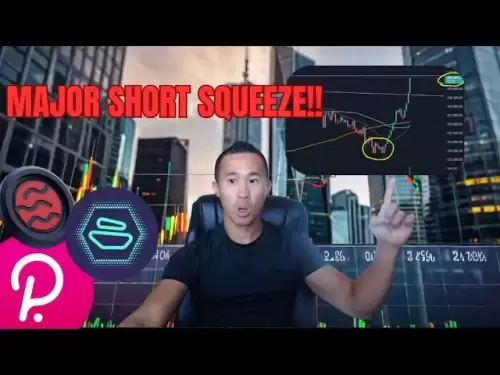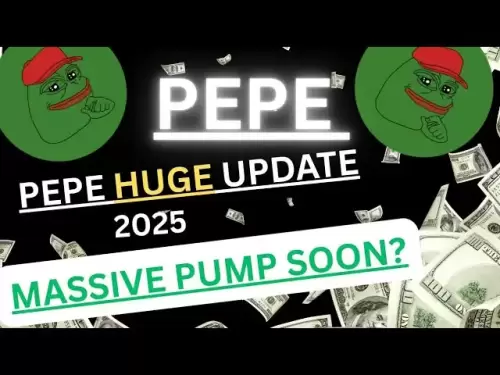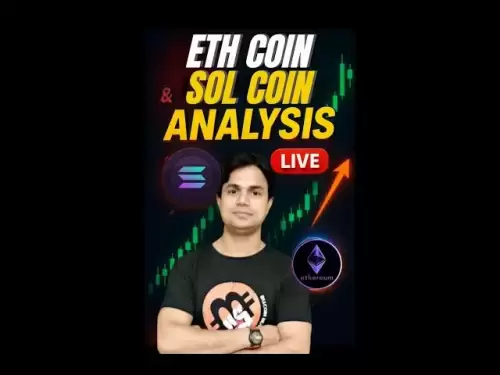-
 Bitcoin
Bitcoin $108,775.7466
2.51% -
 Ethereum
Ethereum $2,568.7115
5.80% -
 Tether USDt
Tether USDt $1.0004
0.01% -
 XRP
XRP $2.2450
2.96% -
 BNB
BNB $659.7609
1.52% -
 Solana
Solana $153.7079
3.09% -
 USDC
USDC $1.0000
-0.01% -
 TRON
TRON $0.2854
1.59% -
 Dogecoin
Dogecoin $0.1692
6.14% -
 Cardano
Cardano $0.5879
7.32% -
 Hyperliquid
Hyperliquid $40.1003
6.73% -
 Sui
Sui $2.8920
7.13% -
 Bitcoin Cash
Bitcoin Cash $502.3889
-0.17% -
 Chainlink
Chainlink $13.5297
4.57% -
 UNUS SED LEO
UNUS SED LEO $8.9982
0.54% -
 Avalanche
Avalanche $18.6337
7.77% -
 Stellar
Stellar $0.2401
5.29% -
 Toncoin
Toncoin $2.8768
2.93% -
 Shiba Inu
Shiba Inu $0.0...01191
5.17% -
 Litecoin
Litecoin $88.2223
5.24% -
 Hedera
Hedera $0.1561
7.36% -
 Monero
Monero $322.6887
2.50% -
 Polkadot
Polkadot $3.5506
7.22% -
 Bitget Token
Bitget Token $4.5860
2.39% -
 Dai
Dai $1.0000
0.00% -
 Ethena USDe
Ethena USDe $1.0001
0.00% -
 Uniswap
Uniswap $7.3387
11.78% -
 Pepe
Pepe $0.0...01021
9.22% -
 Aave
Aave $274.3837
5.30% -
 Pi
Pi $0.4935
0.51%
How to buy The Sandbox coins on Exodus wallet
To buy SAND on Exodus, first add Bitcoin or Ethereum, then swap it for SAND via integrated DEXs like Uniswap, ensuring wallet security and staying informed about The Sandbox ecosystem.
Apr 07, 2025 at 07:14 am
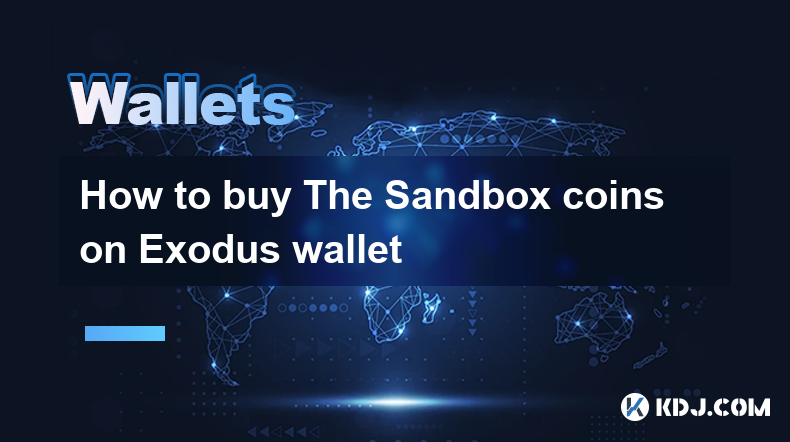
Buying The Sandbox (SAND) coins on the Exodus wallet involves a few straightforward steps. Exodus is a popular multi-currency wallet that supports a variety of cryptocurrencies, including SAND. To begin, you'll need to ensure that your Exodus wallet is set up and ready to use. Once you have your wallet ready, you can proceed to acquire SAND tokens. This process typically involves purchasing another cryptocurrency like Bitcoin or Ethereum first, and then using that to buy SAND on a decentralized exchange (DEX) that is integrated with Exodus.
To start, you'll need to have some Bitcoin or Ethereum in your Exodus wallet. If you don't have any, you can buy these directly within the Exodus wallet using a linked bank account or credit card. Once you have Bitcoin or Ethereum, you can then use these to purchase SAND. Exodus has integrated with several DEXs, such as Uniswap, which allows you to swap your Bitcoin or Ethereum for SAND directly within the wallet. This process is user-friendly and designed to be as seamless as possible.
Setting Up Your Exodus Wallet
Before you can buy SAND, you need to set up your Exodus wallet. Here's how you can do it:
- Download the Exodus wallet from the official website.
- Install the wallet on your device, whether it's a desktop or mobile.
- Create a new wallet by following the on-screen instructions. Make sure to securely store your recovery phrase.
- Once your wallet is set up, you can proceed to add Bitcoin or Ethereum to it.
Adding Bitcoin or Ethereum to Your Wallet
To buy SAND, you'll first need to have Bitcoin or Ethereum in your Exodus wallet. Here's how to add these cryptocurrencies:
- Open your Exodus wallet and navigate to the 'Wallet' section.
- Click on 'Bitcoin' or 'Ethereum' to select the cryptocurrency you want to add.
- Click on 'Buy' to purchase Bitcoin or Ethereum directly within the wallet. You can use a linked bank account or credit card for this.
- Follow the prompts to complete the purchase. Once the transaction is confirmed, the Bitcoin or Ethereum will appear in your wallet.
Swapping Bitcoin or Ethereum for SAND
Once you have Bitcoin or Ethereum in your wallet, you can swap it for SAND. Here's how to do it:
- In your Exodus wallet, navigate to the 'Wallet' section.
- Click on 'Bitcoin' or 'Ethereum' to select the cryptocurrency you want to swap.
- Click on 'Exchange' to initiate the swap process.
- Select 'SAND' as the cryptocurrency you want to receive.
- Enter the amount of Bitcoin or Ethereum you want to swap and review the transaction details.
- Confirm the swap. The transaction will be processed through a DEX like Uniswap, and once completed, the SAND will appear in your wallet.
Understanding The Sandbox (SAND)
The Sandbox is a decentralized virtual world where users can create, own, and monetize their gaming experiences. SAND is the native utility token of The Sandbox ecosystem. It's used for various purposes within the platform, such as purchasing land, assets, and other in-game items. Understanding the utility and potential of SAND can help you make informed decisions about your investment.
Security Tips for Using Exodus Wallet
When dealing with cryptocurrencies, security is paramount. Here are some tips to keep your Exodus wallet and your SAND tokens safe:
- Always download the Exodus wallet from the official website to avoid phishing scams.
- Keep your recovery phrase secure and never share it with anyone.
- Enable two-factor authentication (2FA) if available.
- Regularly update your wallet to the latest version to benefit from the latest security enhancements.
- Be cautious of phishing emails and never click on suspicious links.
Monitoring Your SAND Investment
Once you've purchased SAND, it's important to keep an eye on your investment. Here are some ways to monitor your SAND tokens:
- Use the Exodus wallet's built-in portfolio tracker to keep track of your SAND balance and its value.
- Set up price alerts on cryptocurrency tracking apps to stay informed about significant price movements.
- Regularly check The Sandbox's official channels for updates on the platform's development and any news that might affect SAND's value.
Potential Risks and Considerations
Investing in cryptocurrencies like SAND comes with risks. Here are some considerations to keep in mind:
- Cryptocurrency markets are highly volatile, and the value of SAND can fluctuate significantly.
- Regulatory changes in different countries can impact the legality and usability of SAND.
- Technical issues with the Exodus wallet or the DEXs it integrates with could affect your ability to buy or sell SAND.
- Always do your own research and consider your risk tolerance before investing in SAND or any other cryptocurrency.
Maximizing the Use of SAND in The Sandbox
Once you have SAND in your wallet, you can start using it within The Sandbox ecosystem. Here are some ways to maximize its use:
- Purchase virtual land in The Sandbox to create and monetize your own gaming experiences.
- Buy in-game assets and NFTs to enhance your virtual world.
- Participate in The Sandbox's governance by voting on proposals that affect the platform's development.
- Engage in trading and selling your creations within The Sandbox marketplace to earn more SAND.
Staying Informed About The Sandbox and SAND
To stay up-to-date with The Sandbox and SAND, consider the following:
- Follow The Sandbox's official social media channels and blog for the latest news and updates.
- Join The Sandbox community forums and Discord channels to engage with other users and developers.
- Subscribe to cryptocurrency news outlets that cover The Sandbox and SAND to stay informed about market trends and developments.
Common Questions About Buying The Sandbox Coins on Exodus Wallet
Q: Can I buy SAND directly with fiat currency on Exodus wallet?
A: No, you cannot buy SAND directly with fiat currency on Exodus wallet. You need to first purchase Bitcoin or Ethereum using fiat, and then swap those for SAND within the wallet.
Q: Is it safe to store SAND in the Exodus wallet?
A: Yes, Exodus wallet is considered safe for storing SAND and other cryptocurrencies. However, always follow best security practices, such as keeping your recovery phrase secure and enabling 2FA if available.
Q: How long does it take to swap Bitcoin or Ethereum for SAND on Exodus wallet?
A: The time it takes to swap Bitcoin or Ethereum for SAND can vary depending on the DEX used and network congestion. Typically, it can take anywhere from a few minutes to an hour.
Q: Can I use SAND for anything other than The Sandbox ecosystem?
A: While SAND is primarily used within The Sandbox ecosystem, it can also be traded on various cryptocurrency exchanges. However, its utility is most significant within The Sandbox platform.
Q: What should I do if I encounter issues while trying to buy SAND on Exodus wallet?
A: If you encounter issues, first check the Exodus wallet's support page for troubleshooting guides. You can also reach out to their customer support team for assistance. Additionally, ensure that you are using the latest version of the wallet and that your internet connection is stable.
Disclaimer:info@kdj.com
The information provided is not trading advice. kdj.com does not assume any responsibility for any investments made based on the information provided in this article. Cryptocurrencies are highly volatile and it is highly recommended that you invest with caution after thorough research!
If you believe that the content used on this website infringes your copyright, please contact us immediately (info@kdj.com) and we will delete it promptly.
- Bitcoin Soars to $109,000: What's Fueling the Crypto Rally?
- 2025-07-03 10:30:13
- Chainlink's Chart Patterns Hint at a Big Move: Decoding the LINK Price
- 2025-07-03 10:50:12
- Shiba Inu, Solana Uptrend, Bitcoin Breakout: Decoding the Crypto Buzz
- 2025-07-03 10:50:12
- XRP Price Targets $2.40 After Descending Channel Breakout: Is $40 Next?
- 2025-07-03 08:50:12
- All Blacks' Loose Forward Conundrum: New Faces and Familiar Battles
- 2025-07-03 08:30:12
- Bitcoin's Wild Ride: Open Interest, Institutional Bets, and Billions on the Line
- 2025-07-03 08:30:12
Related knowledge

How to lock my Phantom wallet extension?
Jul 03,2025 at 11:14am
What Is the Phantom Wallet and Why Lock It?The Phantom wallet is a popular non-custodial cryptocurrency wallet designed for interacting with the Solana blockchain. Supporting both browser extensions and mobile apps, Phantom allows users to store, send, receive, and stake SOL tokens, as well as interact with decentralized applications (dApps). Securing y...

Does Phantom wallet offer two-factor authentication (2FA)?
Jul 03,2025 at 09:00am
Understanding Phantom Wallet and Its Security FeaturesPhantom wallet is a widely used non-custodial cryptocurrency wallet that supports the Solana blockchain. It allows users to store, send, receive, and interact with decentralized applications (dApps) seamlessly. As security is a top priority for any crypto wallet user, security features like two-facto...

What is "rent" on Solana and how does it affect my Phantom wallet?
Jul 02,2025 at 08:35pm
Understanding 'Rent' on SolanaIn the context of Solana, the term 'rent' refers to a storage fee that users pay for maintaining data on the blockchain. Unlike Ethereum, where storage costs are paid once via gas fees during contract deployment, Solana implements a recurring cost model to ensure efficient usage of network resources. This means that any acc...
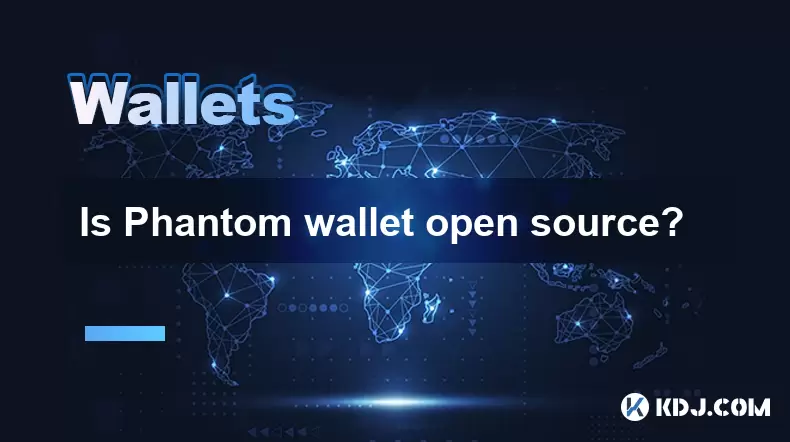
Is Phantom wallet open source?
Jul 03,2025 at 12:29am
What is Phantom Wallet?Phantom wallet is a non-custodial cryptocurrency wallet primarily designed for the Solana blockchain. It allows users to store, send, receive, and interact with decentralized applications (dApps) on the Solana network. The wallet is available as a browser extension and mobile application, offering a seamless experience for both be...
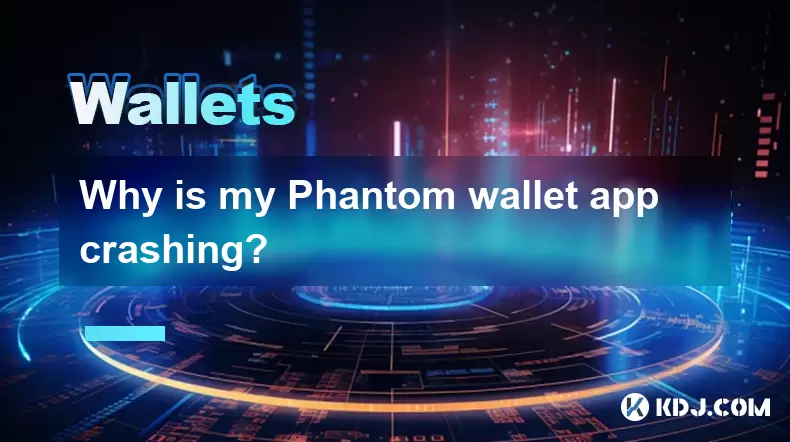
Why is my Phantom wallet app crashing?
Jul 02,2025 at 07:35pm
Understanding Phantom Wallet App CrashesIf you're experiencing issues with the Phantom wallet app crashing, you're not alone. Many users have reported similar problems, especially during high network activity or after recent updates. Phantom is a popular Solana-based wallet that allows users to store, send, and receive SOL tokens as well as interact wit...
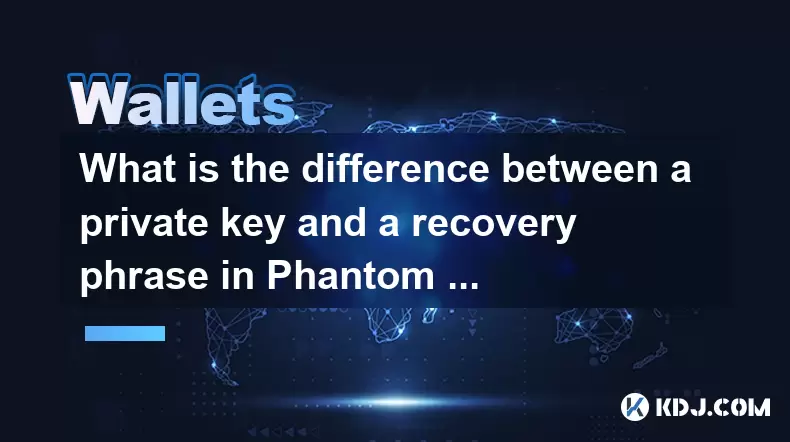
What is the difference between a private key and a recovery phrase in Phantom wallet?
Jul 02,2025 at 09:57am
Understanding the Basics of Phantom WalletPhantom wallet is a non-custodial digital wallet primarily used for interacting with the Solana blockchain. It allows users to store, send, and receive SOL tokens and other digital assets like NFTs. Non-custodial means that the user retains full control over their private keys and recovery phrases. Understanding...

How to lock my Phantom wallet extension?
Jul 03,2025 at 11:14am
What Is the Phantom Wallet and Why Lock It?The Phantom wallet is a popular non-custodial cryptocurrency wallet designed for interacting with the Solana blockchain. Supporting both browser extensions and mobile apps, Phantom allows users to store, send, receive, and stake SOL tokens, as well as interact with decentralized applications (dApps). Securing y...

Does Phantom wallet offer two-factor authentication (2FA)?
Jul 03,2025 at 09:00am
Understanding Phantom Wallet and Its Security FeaturesPhantom wallet is a widely used non-custodial cryptocurrency wallet that supports the Solana blockchain. It allows users to store, send, receive, and interact with decentralized applications (dApps) seamlessly. As security is a top priority for any crypto wallet user, security features like two-facto...

What is "rent" on Solana and how does it affect my Phantom wallet?
Jul 02,2025 at 08:35pm
Understanding 'Rent' on SolanaIn the context of Solana, the term 'rent' refers to a storage fee that users pay for maintaining data on the blockchain. Unlike Ethereum, where storage costs are paid once via gas fees during contract deployment, Solana implements a recurring cost model to ensure efficient usage of network resources. This means that any acc...

Is Phantom wallet open source?
Jul 03,2025 at 12:29am
What is Phantom Wallet?Phantom wallet is a non-custodial cryptocurrency wallet primarily designed for the Solana blockchain. It allows users to store, send, receive, and interact with decentralized applications (dApps) on the Solana network. The wallet is available as a browser extension and mobile application, offering a seamless experience for both be...

Why is my Phantom wallet app crashing?
Jul 02,2025 at 07:35pm
Understanding Phantom Wallet App CrashesIf you're experiencing issues with the Phantom wallet app crashing, you're not alone. Many users have reported similar problems, especially during high network activity or after recent updates. Phantom is a popular Solana-based wallet that allows users to store, send, and receive SOL tokens as well as interact wit...

What is the difference between a private key and a recovery phrase in Phantom wallet?
Jul 02,2025 at 09:57am
Understanding the Basics of Phantom WalletPhantom wallet is a non-custodial digital wallet primarily used for interacting with the Solana blockchain. It allows users to store, send, and receive SOL tokens and other digital assets like NFTs. Non-custodial means that the user retains full control over their private keys and recovery phrases. Understanding...
See all articles





















